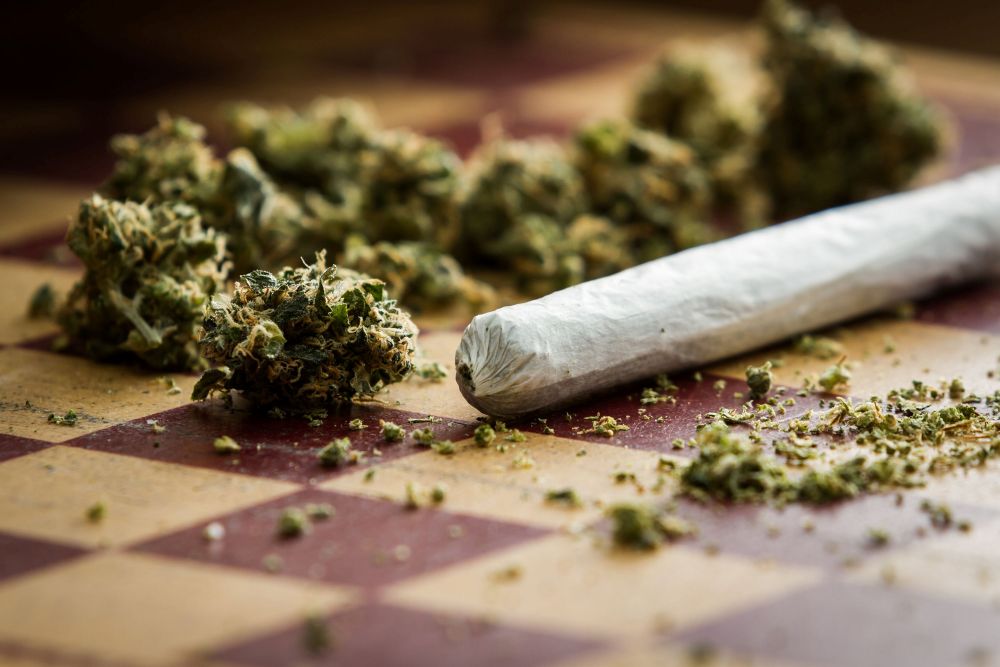
Sprayed weed in substance addiction refers to cannabis that has been altered with additional substances such as synthetic cannabinoids or opioids. Public health agencies have reported that these additives can increase toxicity, cause unpredictable reactions, and interfere with recovery. People searching for clarity on this topic often want to understand how sprayed weed use begins, what chemicals may be involved, how to recognize the signs, and how it affects long-term sobriety. If you or someone you know is struggling with substance use involving sprayed weed, reaching out to a drug rehab center in New York can provide the specialized support needed for recovery.
How Sprayed Weed Started
Reports from the early 2000s show that some illicit manufacturers began modifying cannabis by applying chemical additives to intensify effects or mimic stronger strains. This shift was driven by the demand for more potent highs and the profitability of chemically manipulated products. Understanding how this trend developed helps explain why sprayed weed remains a concern for individuals dealing with substance addiction today.
Substances Commonly Added to Sprayed Weed
Sprayed weed may contain a range of hazardous additives. The most frequently documented include:
- Synthetic cannabinoids (often marketed as K2 or Spice) are designed to imitate THC but are known for unpredictable outcomes.
- Opioids, including fentanyl, can dramatically increase overdose risk.
- Industrial chemicals, such as pesticides or solvents, can remain on the plant material and cause harmful reactions when heated and inhaled.
These additives are typically chosen to alter potency or create different psychoactive effects, but they introduce significant health dangers.
Health Risks Linked to Sprayed Weed
Using sprayed weed can expose a person to severe physical and mental health risks. Synthetic cannabinoids may trigger agitation, hallucinations, elevated heart rate, or seizures. Opioid-contaminated cannabis can cause respiratory depression, dependence, and risk of overdose. Chemical residue from pesticides or solvents may irritate the lungs, cause nausea, or influence long-term respiratory health. Because users often do not know what the product contains, reactions can be unpredictable.
Recognizing Signs of Sprayed Weed Use
Identifying sprayed weed use relies on observing physical and behavioral changes. Physical indicators may include coughing, red eyes, or notable fluctuations in appetite or weight. Behaviorally, some individuals may appear withdrawn, anxious, or secretive about their consumption habits. Family members and peers often report recognizing changes in sleep, social patterns, or decision-making, which may prompt concern and encourage supportive conversations.
How Sprayed Weed Affects Recovery
Sprayed weed can complicate recovery by introducing substances that alter mood, cognition, and physiological stability. Individuals working toward sobriety may experience setbacks when unknowingly consuming chemicals that trigger cravings, impair judgment, or interact with other substances in their system. Treatment professionals frequently emphasize that chemically altered cannabis can disrupt routines, increase emotional volatility, and compromise progress in therapy or support programs. Feedback from people in recovery often highlights how unknown contaminants made it more difficult to remain consistent with treatment goals.
Reducing the Risk of Exposure to Sprayed Weed
Reducing the likelihood of encountering sprayed weed involves practical safety steps:
- Purchase cannabis only from licensed or regulated providers in states where legal markets operate.
- Inspect cannabis for unusual textures, residues, or odors before use.
- Seek products with documented third-party laboratory testing for purity, potency, and contamination screening.
- Store cannabis securely to prevent exposure to moisture, chemicals, or cross-contamination.
Many individuals in recovery and harm-reduction communities report that following these steps helps them feel more confident about product safety and reduces the risk of accidental exposure.
Contact Us
If you or a loved one is seeking compassionate and professional substance use disorder treatment, Arms Acres is here to help. We are available by phone, email, web, and several social networks! Get in touch with us! We would love to hear from you!
- Address: 75 Seminary Hill Road, Carmel, NY 10512
- Intake: 888-227-4641
- Business Hours:
- Sunday - Monday: 24hours
- Email: info@armsacres.com
Please fill out this form, and we will get in touch with you shortly.
Related Topics:



